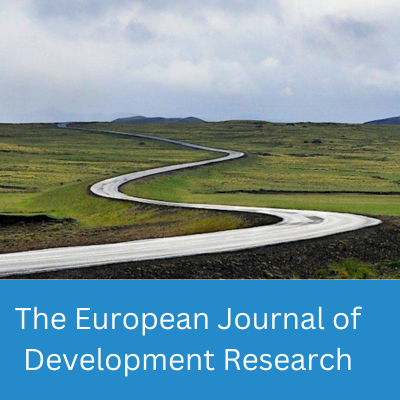The Belt and Road Initiative and Dynamics of Structural Transformation, 11 December, Online
Launch Event of Special EJDR Issue, 13.30 CET
edited by Linda Calabrese, Rhys Jenkins & Lorena Lombardozzi
Structural transformation is among the core questions in development economics, but in recent decades, the discipline has shifted its focus away from production and transformation in favour of analyses on exchange, growth and productivity. Yet, the structural transformation question remains central, and needs to be confronted with the main changes in the global economic and political landscape, such as the emergence of the Belt and Road Initiative (BRI). With its emphasis on an infrastructure-based connectivity agenda, the BRI opens the space for a paradigm shift in development, and for a renewed emphasis on structural transformation. This article introduces a special issue that explores the role of the BRI in promoting structural transformation in low- and middle-income countries, to understand if and under which conditions the BRI creates pathways that can change the structure of the economies. Through an explicit focus on the role of BRI on transformation in low- and middle-income countries, this special issue examines how domestic institutions regulate and coordinate production diversification, national and international sectoral specificities, and drivers and barriers to technological innovation and trade. In this sense, the special issue sheds light on new conceptualisations and empirical examples of industrial policies.
The special issue can be found here
List of speakers/authors
Dr Guanie Lim is Associate Professor at the National Graduate Institute for Policy Studies (GRIPS), Japan. His main research interests are comparative political economy, value chain analysis, and the Belt and Road Initiative in Southeast Asia. Guanie is also interested in broader development issues within Asia, especially those of China, Vietnam and Malaysia. He teaches graduate courses focusing on the political economy of Southeast Asian countries as well as other emerging markets.
Dr Saite Lu is an economist with extensive experience in academia, public policy, and international development. He currently serves as the Mead Fellow and Director of Studies in Economics at Emmanuel College, University of Cambridge. Dr Lu has held academic roles at the University of Cambridge, University of Oxford, and ISM University of Management and Economics, with research focusing on macro-fiscal forecasting, national accounting, and sustainable development. Beyond academia, Dr Lu has advised the governments of Oman, Ethiopia, South Sudan, Sierra Leone, and the Palestinian Authority on macro-fiscal policies. He has also engaged in global policy dialogues as a Fellow of the Global Future Councils with the World Economic Forum."
Editors
Linda Calabrese is Senior Research Fellow in the International Economic Development Group at ODI and Leverhulme Doctoral Fellow at the Lau China Institute, King’s College London
Lorena Lombardozzi is a Senior Lecturer at SOAS, university of London and visiting fellow at The Open University.


